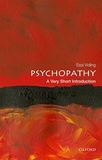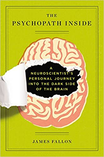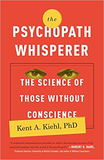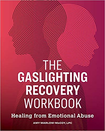What is psychopathy?
Psychopathy is a personality trait that is often associated with antisocial behaviour. Individuals across society can range in their levels of psychopathic personality. A person high on psychopathy can be called a psychopath, or an individual with a high level of psychopathic personality. This is someone who behaves egotistically and puts themselves above others, thereby brushing other people aside. They often don’t notice the distress that they cause due to lower affective empathy and less remorse. Oppositely, a person low on psychopathy may care about other people, commiserate with others, and behave altruistically. Individuals high on psychopathic personality can vary in the expression of the trait; some might be violent and break the law, some might be predominantly fearless and coldhearted. Measuring the levels of psychopathic traits should be done by trained psychologists.
Helpful links
Below are links to organisations, books, work from researchers, and counselling directories that could be helpful to both victims of psychopathic individuals, and those who think they may be high in psychopathy.
Organisations:

Society for the Scientific Study of Psychopathy
Organisation dedicated to the scientific study of psychopathy.

PsychopathyIs
A helpful webpage with information around psychopathic personality
A helpful webpage with information around psychopathic personality

Aftermath: Surviving Psychopathy
Support, information, and resources to help victims of psychopathic individuals to overcome the negative impact on their lives. The website includes a survivor forum, Q&A sessions with experts, and research, amongst other helpful materials.

The Mental Health Foundation
Extensive information about a range of mental health disorders as well as wellbeing tips and crisis support.

Shine
Provides a number of situation-specific resources for both victims of domestic violence and friends of victims.

Women's Refuge
NZ-based source of information about seeking help during an abusive relationship.
They offer the ‘Shielded Site’ initiative, a tool that shields browser history so that abusers cannot see that their victim may be planning to escape.

Women's Aid (UK)
A UK-based source of information about seeking help during an abusive relationship.
The Survivor’s Handbook offers guidance and support for both women and men facing domestic abuse.
A UK-based source of information about seeking help during an abusive relationship.
The Survivor’s Handbook offers guidance and support for both women and men facing domestic abuse.
Books:

Psychopathy: A Very Short Introduction
Dr Essi Viding gives a brief introduction to psychopathy as a personality disorder, including explanations of some key features as well as why some people become psychopaths.

The Psychopath Inside: A Neuroscientist's Personal Journey into the Dark Side of the Brain
Dr James Fallon details his discovery that his own brain scan matches those of psychopaths, and discusses to what extent biology is a factor in behaviour.

The Psychopath Whisperer: The Science of Those Without Conscience
Dr Kent A. Kiehl discusses his experiences working with and interviewing psychopaths for over 20 years from a science-forward perspective.

The Gaslighting Recovery Workbook: Healing from Emotional Abuse
A unique interactive workbook to aid recovery from emotional abuse and regain self-esteem through journaling and other activities.
Work from researchers:

Our Changing World with Dr Hedwig Eisenbarth
A short radio interview about psychopathic traits with Afcrinlab's own Dr Hedwig Eisenbarth.

Misconceptions regarding psychopathic personality: implications for clinical practice and research
A review article published in Neuropsychiatry dispelling rumours and myths about psychopathy.
|
Dr Adelle Forth is an Associate Professor in Psychology, at Carleton University, Canada. She is the director of the Psychopathy Research Lab.
Counselling Directories:
|
Dr Robert Hare is Emeritus Professor in Psychology at the University of British Columbia. He is the developer of the Psychopathy Checklist-Revised (PCL-R), an assessment tool.
|



The following counsellors specialise in the treatment of personality disorders:
- Hamish Bartle, Clinical Psychologist (D. Clin Psy; MNZCCP) E: [email protected] M: +64 21 646 193 W: drbartle.co.nz
- Courtney Clyne, Clinical Psychologist (PGDipClin; MNZCCP) E: [email protected] M: +64 27 215 9789 W: sextherapynelson.co.nz
- Dan Goodkind, Clinical Psychologist (PhD; MNZCCP) E: [email protected] M: +64 27 545 5885 W: resolutionclinic.nz

